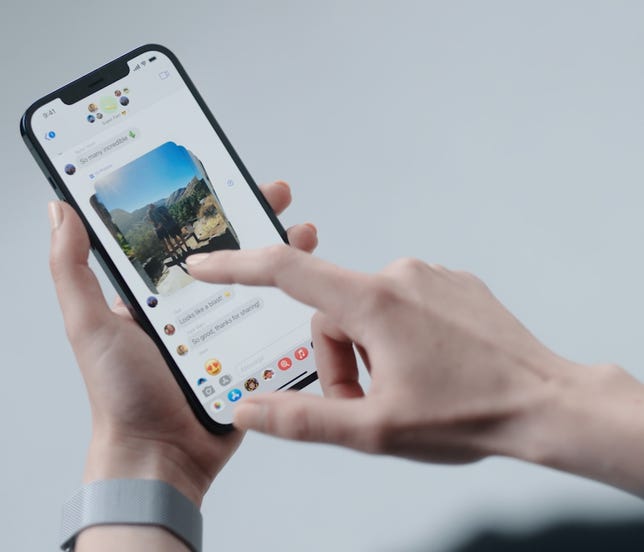When I chose earlier this summer to switch to iPhone from using an Android phone, I didn't think it was going to matter very much. I have been using Android on my phone for years, making use of the many non-Apple services that are out there to text and video chat friends and family. While I was aware my new phone purchase would provide access to to iMessage and FaceTime, I considered it to be solely a perk of having an an iOS device. After all, Apple's services like Apple Arcade and Apple Music are often touted as being the best or exclusive to Apple products, but every one of them has rivals that work on both iOS and Android. Surely, I thought, we'd moved past whether someone was a "green bubble" or a "blue bubble" in a text message. But then after I started using my new iPhone, the following messages started coming in from several friends:

iMessage is nice, but it shouldn't be vital.
Apple"I'm so happy you are blue now!!!"
"Bienvenue a la Club Apple!"
"It's about time."
These are all actual statements, whether through texting or in person, that friends being made aware of my switch have told me... and I simply do not understand why.
Yes, iMessage is convenient. Yes, so is FaceTime. While I personally decided to buy an iPhone 12 Pro Max for the redesign and app privacy controls in iOS 14.5, I didn't expect it to make a difference for anyone in my social circle. I especially didn't expect it to matter to the point of displaying fairly intense relief and jubilation.
During the last three years using Android on a Moto Z2 Play and a Pixel 3 XL, the same friends simply "met" me on other services. Many use WhatsApp for texting. Google Duo is my favorite way to video chat -- and frankly already includes many of the new improvements coming to FaceTime this fall in iOS 15 such as invite links, Portrait Mode and chatting inside of any web browser. A combination of Facebook Messenger and Microsoft's Skype hits most other contacts who aren't into WhatsApp or Duo. And even a recent group chat that was trudging along on MMS shifted over to Instagram. (Alas: I wish more people had access to RCS messages....)
Despite the clear comfort people have for these non-Apple services, in the weeks leading into my device swap several of my friends told me their plans to quit those other services once I moved to iOS.
You're the only one I talk to on WhatsApp," confessed a close college friend who previously told me it was super convenient.
Two friends I speak to primarily on Facebook Messenger told me about their excitement for moving our chat to iMessage, and then I realized one of them had never even given me their phone number.
And another friend rarely had any interest in doing video chats with me when I used Android, but now that they can FaceTime, I get unprompted calls.
My family members, graciously, have not cared whether or not I'm using an iPhone. While I know using FaceTime is a preference for them, one thing was more important: Does it work? So at least with them, video chats over WhatsApp and Skype are still viable.
Even Apple is starting to acknowledge that facilitating a fast and easy conversation no matter what device people are on is what's most important. FaceTime opening up a little bit to include participants on Android, Windows and anywhere a web browser loads is a half-step: ideally when it launches it will let iOS people include anyone they want in a conversation, but actually starting a FaceTime call looks to remain exclusive to Apple devices. In an interview with UrAvgConsumer, Apple Senior Vice President Craig Federighi acknowledged that opening up FaceTime has become what its customers want.
Comments
Post a Comment